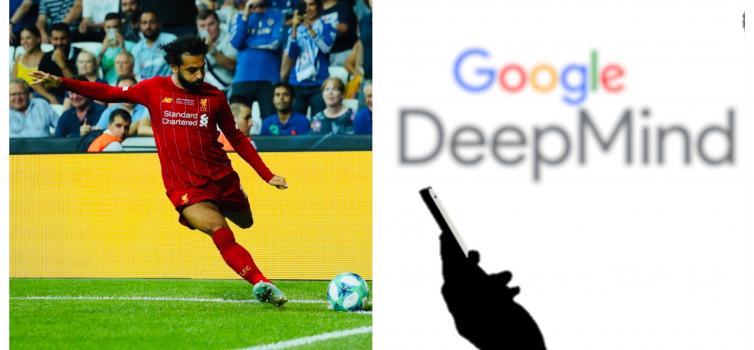Liverpool & Google DeepMind develop AI to advise coaches on corners

TacticAI was developed as part of a collaboration between Liverpool and Google DeepMind
Written by Simon Austin — March 21, 2024
LIVERPOOL and Google DeepMind have developed a “full AI system” called TacticAI which can “advise coaches on corner kicks.”
The Reds are three years into a “multi-year” collaboration with Google DeepMind - the research lab that originally launched in 2010 with the objective of taking a multi-disciplinary approach to developing AI systems.
Their latest piece of work is TacticAI, a "tactics assistant" that used predictive and generative AI to analyse what happened from 7,176 previous Liverpool corner kicks. After analysing this dataset, TacticAI was able to advise coaches on how their corner routines could be improved.
The suggestions were “preferred by human expert raters 90% of the time over tactical set-ups seen in practice,” according to a research paper published by Liverpool and Google DeepMind staff in Nature Communications. These "expert raters" were three Data Scientists, one Video Analyst and one Coaching Assistant from Liverpool.
The paper explains how TacticAI uses a “geometric deep learning approach” to address three core questions:
- What will happen for a given corner kick tactical set-up? Ie who is most likely to receive the ball and will there be a shot attempt?
- Have similar tactics worked well in the past?
- How can tactics be adjusted to make a particular outcome happen? Eg can defenders be repositioned to decrease the probability of shot attempts?
This work would traditionally be done by club analysts, who would, as the paper states, "rewatch many videos of games to look for similar examples and study rival teams.”
It adds: “TacticAI automatically computes the numerical representations of players, which allows experts to easily and efficiently look up relevant past routines.”
The researchers believe TacticAI can be used to generate other tactical insights aside from corners - and be used in other sports and industries too.
“An AI system can go through the data quickly and point out errors a team is making - I think that’s the added value you can get from AI assistants,” said Petar Velickovic, who works for Google DeepMind and is one of the authors of the paper.
“Top clubs are always searching for an edge, and I think our results indicate that techniques like these are likely going to become a part of modern football going forward. We are strongly in support of AI systems that amplify human capabilities and leave them more time for the creative part of their work, rather than a system that would replace them,”
AI does have the potential to revolutionise workflows in professional football, although it will be difficult to fully replace human input and insight. As Patrick Lucey, the Chief Scientist at Stats Perform, said at the Opta Forum yesterday: "Will AI take my job? No. But someone who knows how to use it effectively will."
Speaking last year on the TGG Podcast (which you can listen to below), former Liverpool Post-Match Analyst Mark Leyland, who is now Head of Coaching Methodology for City Football Group, outlined the analysis process that had led to one of the club’s most famous corner-kick routines and goals.
This was scored by Trent Alexander-Arnold in the 2019 Champions League semi-final second leg against Barcelona, when a ball boy helped the full-back take a quick corner kick and grab the crucial fourth goal.
“It was actually Harrison Kingston (former Head of Post Match Analysis) who was the brains behind it,” Leyland said.
“He identified that the ballboys weren’t getting the ball back in quick enough when we weren’t winning. We were an intense team that wanted things to be quick.
“He produced a video and it was sent to them (the ballboys) and also shown to them at the stadium before the game. It’s the same as coaching process - you’re reinforcing key principles.
“We got to 3-0 up and it was one of those moments where you can’t write it, it was almost too good. The ballboy (Oakley Cannonier) just dropped the ball down.”
This is the third paper produced as part of the collaboration between Liverpool and Google DeepMind.The first was called Game Plan and looked at why AI should be used in assisting football tactics, highlighting examples such as analysing penalty kicks.
In 2022, Graph Imputer showed how AI can be used to predict the movements of players off-camera when no tracking data is available, saving the need for a scout to watch the game.




-1.png)





